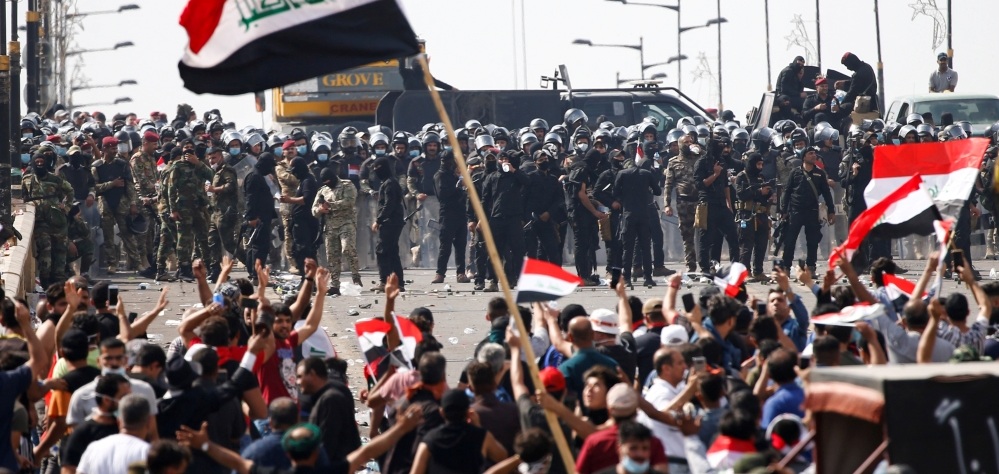Alwaght- The Iraqi protests continue to unfold in the capital and some of the cities for the fourth month, although now smaller numbers are taking to the streets to protest corruption, poor services, and deteriorating living conditions. In the beginning, it could be said that there was not a clear categorization to the protestors. In reviewing the protest and political movements, the important point is getting an understanding of the discourses motivating them. The discourse difference is what differentiates between the slogans and demands of the protest movements and even lead to their division, with every side trying to hijack the demonstrations to its own favor. What is important is getting a picture of their discourse and specifying their weight in the developments. Here is a look at three leading discourses in the Iraqi protests.
Pro-reform discourse
The first and most serious discourse in the Iraqi protests that started since October last year is the reform discourse. The unifying factor in this discourse is the concept of change, which seeks end to the systematic economic corruption and political rentier and demands reform of political governance and introduction of fundamental social changes.
This discourse can be considered as the real and sole representation of the demands of people and political figures whose main aim is reforming and mending the big flaws in various fields. Certainly, the initial wave of protests had no goal but reforms in social, political, and economic structures. The main address of this wave was the administration. The representatives of this discourse want an end to entrenched economic corruption in society, economy, and politics. They demand the rise of officials responding to citizens’ needs.
Economic, political, and social growth of a country and the officials’ commitment to the constitution is the key demand of those embracing this discourse. They on the one hand do not find chaos and riot as the way to realize the goals of the demonstration and on the other hand do not want a transition to a state of anarchy where there is absolute disorder.
The pro-reform discourse must be regarded as the real representation of the protestors from various ideological and partisan ranges. Even many of government officials can be part of this discourse. The statements by Iraq’s Shiite cleric Ayatollah Sayyed Ali al-Sistani in support of the protest demands provides a clear tool to understand the bases of this discourse.
Nationalist discourse
Although no clear borders can be drawn to separate the discourses driving the Iraqi protests, actions of various actors lead to the recognition of various practical and ideological trends. With this in mind, the second most influential discourse must be named nationalist. The discourse covers a wide range of Shiites, Sunnis, and Turkmens who all find the concept of “nation” as a unifying element for them.
This discourse which includes Baathists, puppets, and vassals has turned into the key discourse over the past four months, representing riots, damage, and civil disobedience. Using nationalist slogans with secret aims– many of whom not known by the ordinary supporters– and with heavy media support provided by Saudi and American media outlets beside financial banking, the representatives of this discourse call for fall of the government and review of Iraq’s regional relations under the excuse of restoring the country’s independence.
The supporters of nationalist discourse were those who destroyed public utilities, attacked security forces and Iranian consulates in more than one city and in a more intensified level called for the fall of the government. But not all of the backers of this discourse should be regarded as vassals and pursuing foreign agenda. Still, the remnants of the Baathist Party use nationalism to fuel violence and upgrade the pro-reform protests to an uprising. They are a minority but they take a center stage on the regional and international media as they have the favor of foreign sides.
Xenophobic discourse
The third discourse should be labeled xenophobic. The discourse concentrates on opposition to foreign meddling and demands for a technocratic government, disconnected from partisan and political belongings.
The key advocate of this discourse is Muqtada al-Sadr and his supporters who since the beginning of the demonstrations played an active role. They focused on forcing the foreign actors out of the country and restoring the administration to the Iraqis, especially to those with expertise. Although this discourse relatively overlaps with other discourses, it insists that to settle the country’s problems, a technocratic government is unavoidable. Namely a technocratic prime minister and cabinet chosen without the US intervention and with the ability to get the country back on track.



























